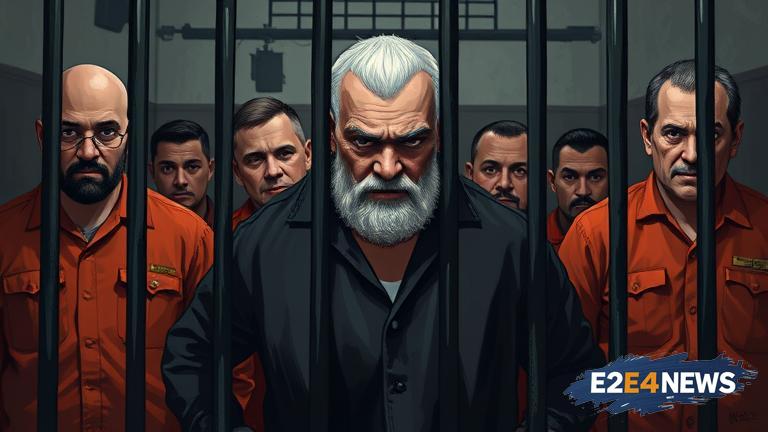Noel Haro, a high-ranking member of an international gang, has been sentenced to 188 months in prison for his role in a range of criminal activities, including racketeering, extortion, and money laundering. The sentence was handed down by a federal judge, who cited Haro’s leadership position and the severity of his crimes as factors in the lengthy prison term. Haro’s gang, which operated in multiple countries, was involved in a variety of illicit activities, including narcotics trafficking, human smuggling, and violent crimes. The gang’s reach was global, with members and associates in several countries, including the United States, Mexico, and Central America. Haro’s leadership role in the gang was significant, and he was responsible for coordinating the group’s activities and enforcing discipline among members. The investigation into Haro’s activities was led by federal law enforcement agencies, who worked closely with international partners to gather evidence and build a case against him. The probe was complex and involved the use of wiretaps, surveillance, and undercover operations to gather intelligence on the gang’s activities. Haro’s arrest was the result of a coordinated effort by law enforcement agencies, who apprehended him in a foreign country and extradited him to the United States to face charges. The prosecution’s case against Haro was built on a mountain of evidence, including testimony from former gang members, documents, and other records. Haro’s defense team argued that the government’s case was flawed and that their client was not guilty of the charges against him. However, the judge rejected these arguments and found Haro guilty on all counts. The sentence of 188 months in prison is one of the longest ever handed down to a gang leader in the United States. Haro’s imprisonment is seen as a significant blow to the gang’s operations and a major victory for law enforcement agencies. The case against Haro is also notable for its international scope and the cooperation between law enforcement agencies in different countries. The investigation and prosecution of Haro’s case demonstrate the commitment of law enforcement agencies to combating transnational organized crime. The sentence is also a warning to other gang leaders and members that they will be held accountable for their crimes, no matter where they are committed. The community is expected to be safer with Haro behind bars, and the sentence is seen as a step towards dismantling the gang’s network. Furthermore, the case highlights the importance of international cooperation in combating organized crime, and the need for continued collaboration between law enforcement agencies across borders. Additionally, the sentence serves as a deterrent to others who may be involved in similar criminal activities, and demonstrates the severity of the consequences for those who engage in such behavior.
